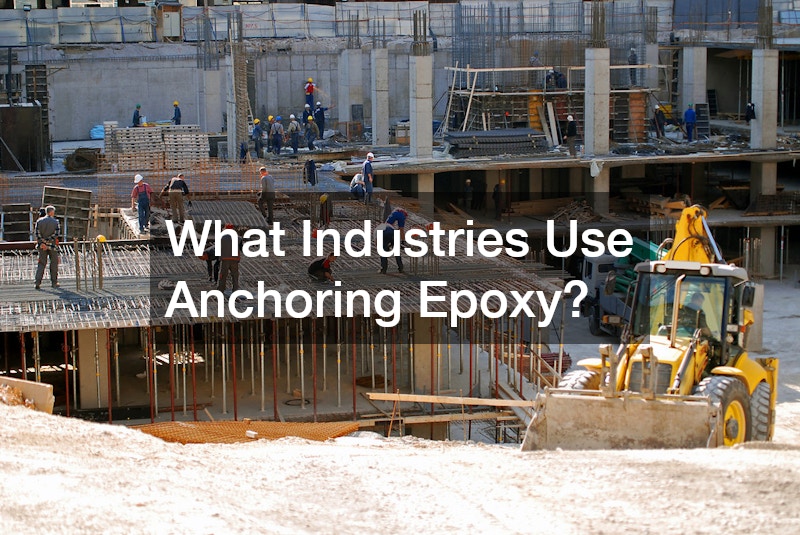The versatility and durability of anchoring epoxy adhesive make it essential for securing heavy loads, bolts, and rebar into concrete or masonry. Its strength and ability to withstand environmental factors make it a popular choice across various industries. In this article, we’ll explore some of the key industries that rely on anchoring epoxy and why it’s a crucial component in their operations.
1. Construction and Civil Engineering
One of the primary industries that use this epoxy type is construction and civil engineering. From large-scale infrastructure projects like bridges and tunnels to smaller residential buildings, anchoring epoxy is essential for securing structural components into concrete.
It’s frequently used to install rebar, anchor bolts, and other fasteners that need to handle high loads and stress.
In civil engineering projects, where structures are exposed to dynamic loads, environmental conditions, and shifting terrain, this kind of epoxy ensures long-lasting stability. It is also used in retrofitting and seismic upgrades, where existing buildings need reinforcement to meet modern safety standards.
2. Manufacturing and Industrial Applications
Manufacturing plants and industrial facilities also rely heavily on this epoxy type for equipment installation and structural support. Heavy machinery, conveyors, and large storage systems often need to be securely anchored to concrete floors to prevent movement or vibration during operation. Anchoring epoxy is used to bond these systems firmly in place, ensuring safety and stability within the plant.
The chemical resistance of some anchoring epoxies also makes them suitable for use in industries dealing with harsh chemicals, such as chemical manufacturing plants or refineries, where other adhesives might fail under exposure to corrosive substances.
3. Transportation Infrastructure
Transportation infrastructure projects, including airports, railways, and roadways, utilize this kind of epoxy to secure important elements such as guardrails, crash barriers, and signage posts. The ability to bond metal to concrete makes it an ideal solution for securing these components, ensuring they can withstand the weight and impact of vehicles.
Anchoring epoxy is also used in the installation of overhead signage, traffic lights, and other equipment that requires stable, reliable anchoring into concrete or masonry. Its durability helps withstand vibrations from traffic and environmental wear and tear, making it a trusted material for transportation-related construction.
4. Marine and Offshore Construction
The marine industry, especially in offshore construction, uses this epoxy type for installations in harsh, corrosive environments. From securing equipment on oil rigs to installing docks and piers, anchoring epoxy provides the strength and durability needed to endure constant exposure to water, salt, and fluctuating temperatures.
Marine engineers also use anchoring epoxy to bond metal components to concrete surfaces, ensuring a solid and corrosion-resistant connection. This makes it an essential material in any marine-related construction project.
.

